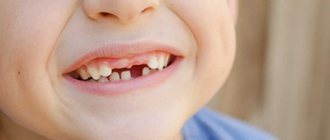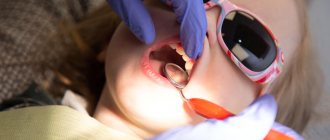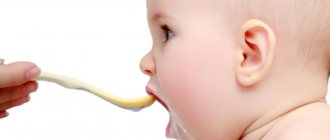Sleep and teething - what to do?
All parents know that teething is one of the most unpleasant events that can happen to their baby. Children become capricious, sleep poorly and put everything in their mouth. But parents often confuse poor sleep and the vagaries associated with it with teething. How to understand that your baby is teething and how to maintain good sleep?
Some sleep experts write in their books that teething does not harm sleep if the baby has already formed the right habits. But I can't agree with this. As with everything else, all children are different, and their pain sensitivity threshold is different. So I think it's our responsibility as parents to sympathize and try to help kids get through this difficult period, but at the same time make sure they get enough sleep.
What are the signs that your baby is teething?
- excessive salivation;
- runny nose;
- redness of the cheeks and/or rash on the chin, around the mouth;
- refusal of the breast/bottle or, conversely, the desire to breastfeed more often;
- strengthening of the sucking reflex;
- desire to bite/gnaw everything around;
- swollen, whitish gums;
- difficulty falling asleep and staying asleep;
- capriciousness, tearfulness.
Also, sometimes when teething, the temperature may rise, stool and frequency of urination may change. But if these symptoms occur, you need to be more careful, as they may indicate an infection. Therefore, if you have any suspicions, it is better to consult a doctor.
How to distinguish teething from just bad sleep?
In fact, this is a very difficult question. My baby, for example, never had swollen gums, fever or runny nose, and the desire to put everything in his mouth did not depend on teething. I usually discovered new teeth by accident. That is, just yesterday evening the gum looked as usual, but today a tooth is sticking out of it. How can you differentiate poor sleep due to teething from other causes of poor sleep? Here are the main points that parents need to remember:
1) The baby slept well, but now he sleeps very poorly. If you have ruled out all possible reasons for waking up and the baby is not sick, then it may be that his teeth have begun to bother him. If this is the case, look closely and you may be able to spot one or more of the symptoms listed above.
2) The baby feels unwell throughout the day. The discomfort from teething should not be confused with the evening whims that arise due to insufficient sleep during the day or going to bed late at night. Indeed, the baby may be more restless at night. But if he behaves very well during the day, and often wakes up at night, then the cause may not only be his teeth.
3) If you have ruled out all other causes of your baby’s anxiety, then you can give him a painkiller 15-20 minutes before bedtime (for example, Nurofen - 2.5 ml once), having previously discussed this with your pediatrician. If the baby is really worried about his teeth, then he will fall asleep better and will not wake up for at least 4 hours, or even all 5-6 (if at night), and during the day he will have a full sleep lasting 1.5-2 hours.
How long does teething take?
It can take 2 years from the first to the last tooth. But this does not mean that the baby will sleep poorly for the entire 2 years “because of teeth.” Very often, parents attribute poor sleep to teething. But in reality, teething itself lasts 2-5 days (molar teeth take longer to erupt). The rest of the poor sleep time is the result of bad habits that we, parents, unknowingly create.
How to help your baby?
Even though it is very difficult to relieve a baby's distress, we still need to make every effort to help him fall asleep and get enough sleep throughout the day and night.
Throughout the day, various teethers (pre-chilled in the refrigerator), a pacifier, special massage brushes, additional drinking of cool water, and additional breastfeeding can help. Teethers helped my baby, but I know many mothers who said that it didn’t help them at all. Try to experiment, and perhaps you will find something that suits your baby.
Nonsteroidal anti-inflammatory drugs (ibuprofen or paracetamol) are considered the most effective medications. Children's ibuprofen (=nurofen) is considered the gold standard, but some experts do not recommend it before 6 months. Therefore, before giving your baby one of these drugs, consult your pediatrician .
Freezing gels can also help. But they must be used very carefully, as they can have a fairly strong “freezing” effect, which can greatly frighten the child and he may become even more restless. Note! According to the latest data, it is not recommended to use pain-relieving gels that contain benzocaine (for example, Orajel), as they can be dangerous to your baby's health. (More about this here.)
Separately, I would like to say about homeopathic medicines. As is known, their effectiveness has not been proven. But the harm has also not been proven. Although mothers claim that their baby “helped a lot.”
Should I stop sleep training during teething?
There can be no clear answer here. If the baby is very unwell, his temperature has risen and he refuses to eat, you should pay him even more attention, take him in your arms, hug him, stay with him longer, even if this affects his sleep. But if the baby is simply “gnawing on his fists,” then you should not deviate from the planned plan. As I already wrote above, teeth erupt over the course of 2 years, but this does not mean that you need to suffer all these 2 years and wait for them to all erupt.
Natalya Domres, children's sleep consultant, neurologist and author of the Baby's Sleep project
Dear Parents! I sincerely wish your babies healthy teeth and good sleep. If you need help, you can always contact me for a consultation, and together we will help you and your baby get enough sleep!
Do you want to keep abreast of new articles and events of the Baby's Dream project? Sign up for the newsletter on the right side of the page!
How to distinguish teething from bad sleep in principle?
Let's be honest with ourselves and check the following points:
- ♦You monitor your child’s routine: avoid over-excitement, overstimulation before bed, and maintain sleep hygiene. But the dream suddenly deteriorated for no apparent reason;
- ♦The baby feels unwell throughout the day, and not just when trying to put him to sleep and at night;
- ♦Time passes, but the situation does not change. We remember! Teething lasts 2-5 days. (An exception may be molars). I repeat: 2-5 days. Not a month, not six months!
Therefore, if your pediatrician reassures you that your whole family has not been sleeping for two months now because of a tooth, it makes sense to think about replacing it. And a reason to contact our Children's Sleep Center for help from a sleep consultant
Painful conditions
Teething is often accompanied by symptoms such as:
- temperature increase;
- diarrhea;
- cough;
- runny nose.
The increase in temperature during teething is explained by the release of large amounts of biogenic amines (biologically active substances). However, such an increase should not be more than 38-38.5 degrees and last no more than 1-3 days.
It is worth bringing down the temperature only if it exceeds 38.5 degrees (more than 38 if the baby had convulsions due to a high temperature).
Among the drugs you should choose those whose active ingredient is paracetamol.
The appearance of a runny nose during teething is caused by increased activity of the glands of the nasal mucosa. Snot is usually transparent in color. The duration of a runny nose is no more than 3-4 days. If nasal congestion prevents a child from falling asleep, you can instill baby drops based on oxymetazoline and xylometazoline. The main treatment for such a runny nose is rinsing the nose with saline solutions (saline solution, Quix, Salin, Humer).
Diarrhea during teething is explained by increased salivation. Excess saliva enters the intestines, resulting in looser stools. There is no need to worry if diarrhea is not accompanied by serious symptoms, such as:
- the appearance of blood in the stool;
- temperature rise of more than 38 degrees;
- lethargy and drowsiness of the child;
- addition of vomiting;
- frequent watery diarrhea.
Sometimes, when teething, a child may experience coughing (especially during sleep) and vomiting. It is also caused by increased salivation: saliva flows into the throat and causes a protective reaction in the form of coughing or vomiting.
If you doubt that these symptoms are caused by teething or they are prolonged, you should take your child to the doctor.
How can you make your child’s life easier during this difficult period:
Remedy No. 1 . Double the affection and care of parents. Don't be afraid to spoil your baby; Constant crying and whims spoil your character much more!
Remedy No. 2. Using teethers. These are rubber or plastic toys that your baby can bite on. Chewing teething rings with liquid inside, which can be placed in the refrigerator and cooled, is especially soothing.
Remedy No. 3. Gently massage the gums with a gauze pad. Wrap your index finger in a gauze pad soaked in cold water and gently massage your baby's gums.
We recommend reading: Sleepy tales and quiet games before bed for children
Remedy No. 4: medications
1. Gels to relieve pain during teething - Kalgel, Kamistad, Dentinox, Bebident, Cholisal, Baby Doctor ... - to choose from, one remedy is suitable for some, another for others, but first look at the instructions on the Internet, regarding age restrictions. These gels contain a local anesthetic, which numbs the gums and thereby “numbs” the pain. The downside of these funds is that they last a very short time.
2. If gels do not help, then Viburkol - doctors recommend them to relieve pain during teething. They are especially convenient to use at night; my older child slept much more peacefully after using them.
3. Just like a painkiller, you can use syrup or suppositories in a maintenance dosage.
4. You can also use Dentokind tablets (this is a homeopathic medicine). The tablet dissolves in a small amount of water... The interval between meals and taking Dentokind should be at least 30 minutes. Children under 1 year - 1 tablet every 60 minutes, but not more than 6 doses per day.
5. Dantinorm baby is a homeopathic medicine in the form of a solution. I used it with my youngest child - it helps quickly and numbs the pain for quite a long time.
Teething order
Most often, the order in which baby teeth erupt is as follows:
- lower central incisors;
- upper central incisors;
- upper lateral incisors;
- lower lateral incisors;
- first lower and upper molars;
- lower and upper canines;
- second upper and lower molars.
If the first teeth to appear are the upper central incisors, there is no need to worry. This refers to the normal variant. However, this order does not always occur. For example, the canine may erupt simultaneously with the first molar or a little earlier than it, the lower lateral incisor may appear along with the first molar or even a little later.
We recommend reading: Sleepwalking in children at night: causes, symptoms
Stages of teething
The formation and formation of primary and permanent teeth occurs in the mother's womb. This is why a healthy diet and lifestyle for a pregnant mother is so important. The accumulation of mineral salts in tooth tissue occurs in utero and continues after the appearance of the crown above the gum.
Why does a one-year-old child have no teeth - timing of appearance
After the final “crawl out” of the tooth, a period of physiological rest begins for it; it stops growing until the child reaches 5 years of age. Then the roots shorten, the tooth itself becomes mobile and falls out.
Eruption occurs in stages, in several stages:
- most often, at 6-10 months, the lower incisors appear first, two at once or in turn the right and left;
- at 8-12 months the upper incisors are added to them;
- at 9-13 months – upper lateral incisors;
- at 10-16 months – lower lateral incisors;
- at 16-22 months - upper and lower first molars;
- at 14-18 months – upper canines;
- at 13-19 months – lower canines;
- at 25-33 months - upper and lower second molars.
Attention! A deviation from the norms of eruption by 6 months is normal, as is the appearance of teeth in a different order. This is not a symptom of the disease. There are no medications that affect tooth growth.
The child’s body actively reacts to the teething process; based on the condition of the gums and the general condition of the baby, an experienced mother will figure out how to understand that the child is cutting teeth.
The lower incisors appear first











